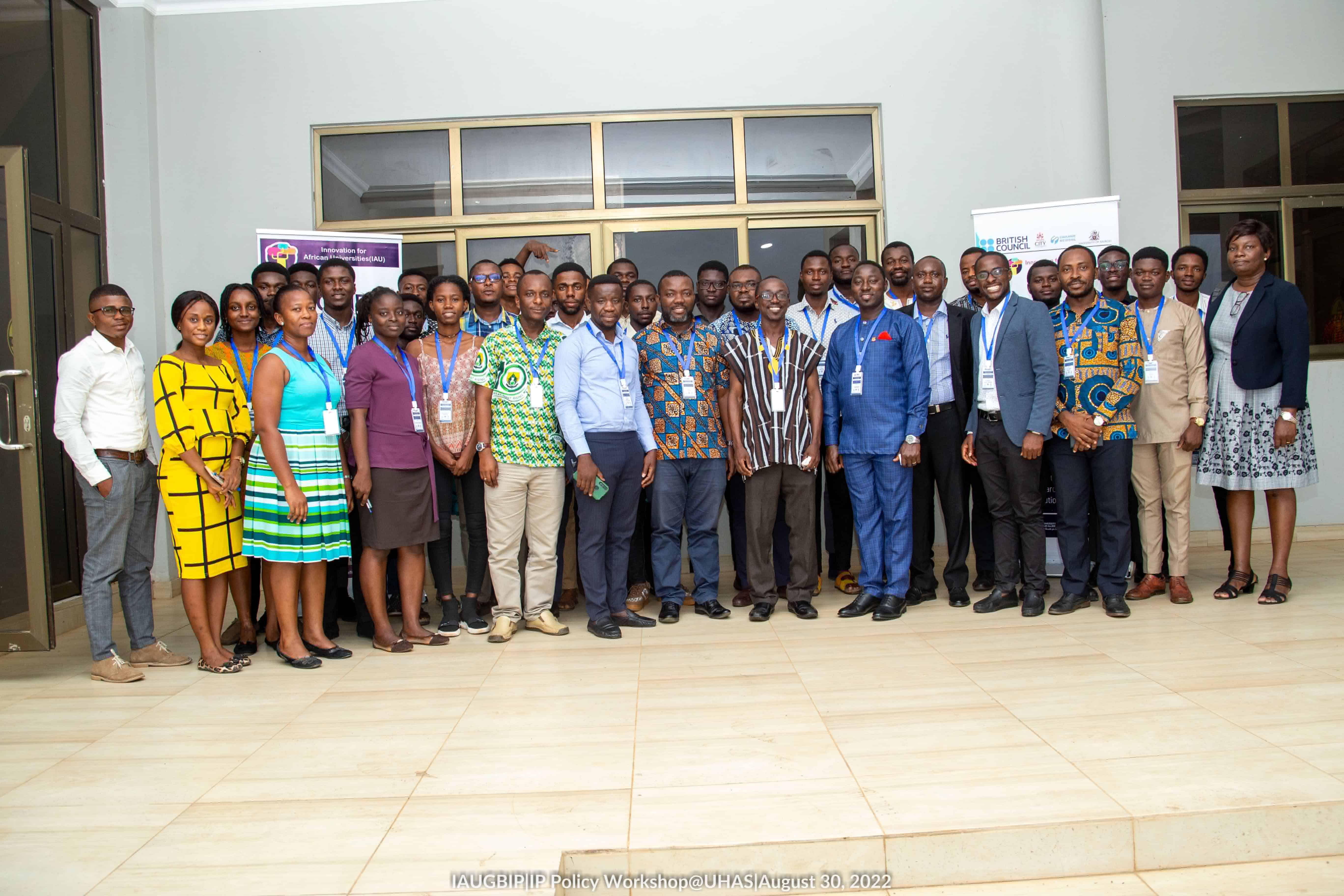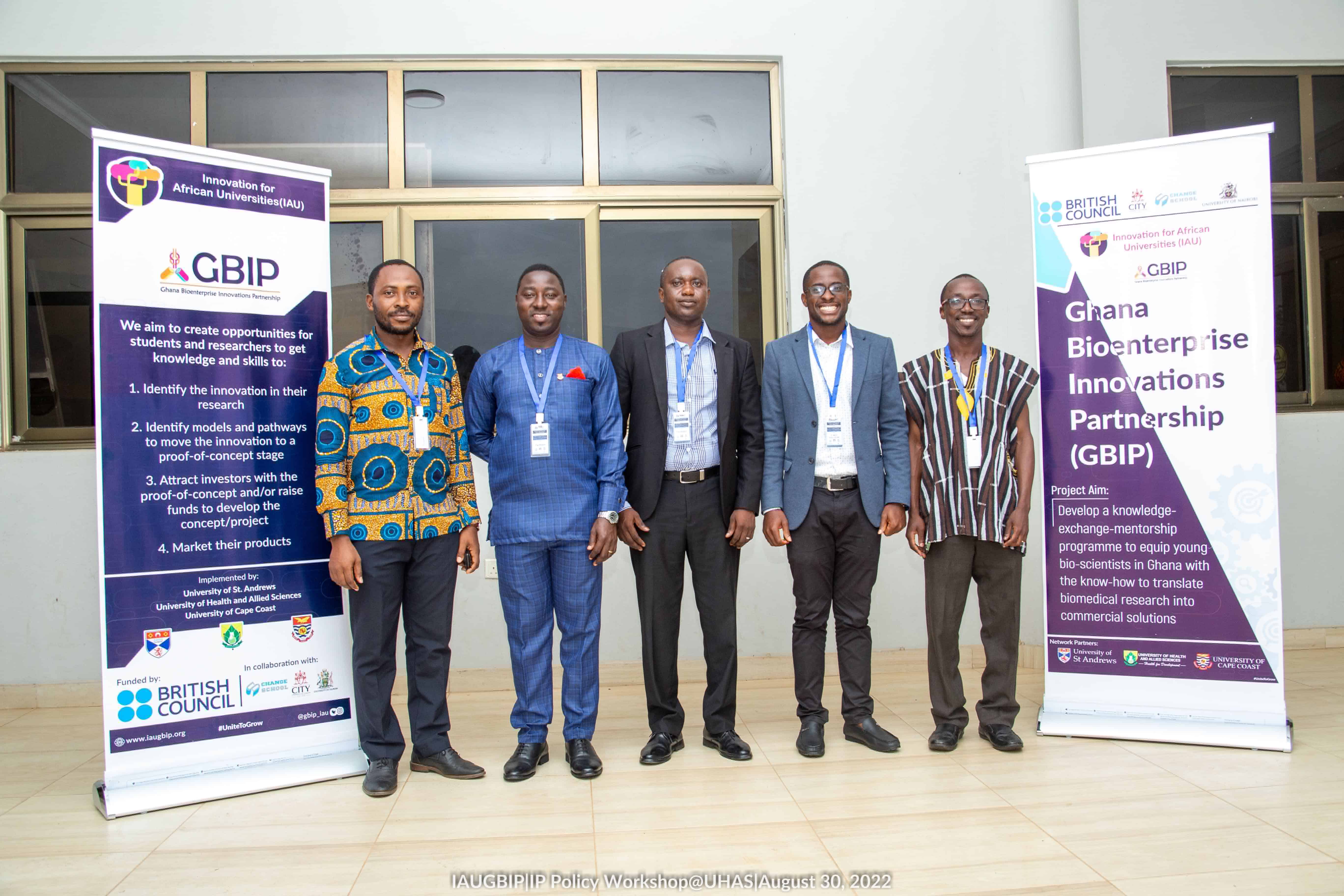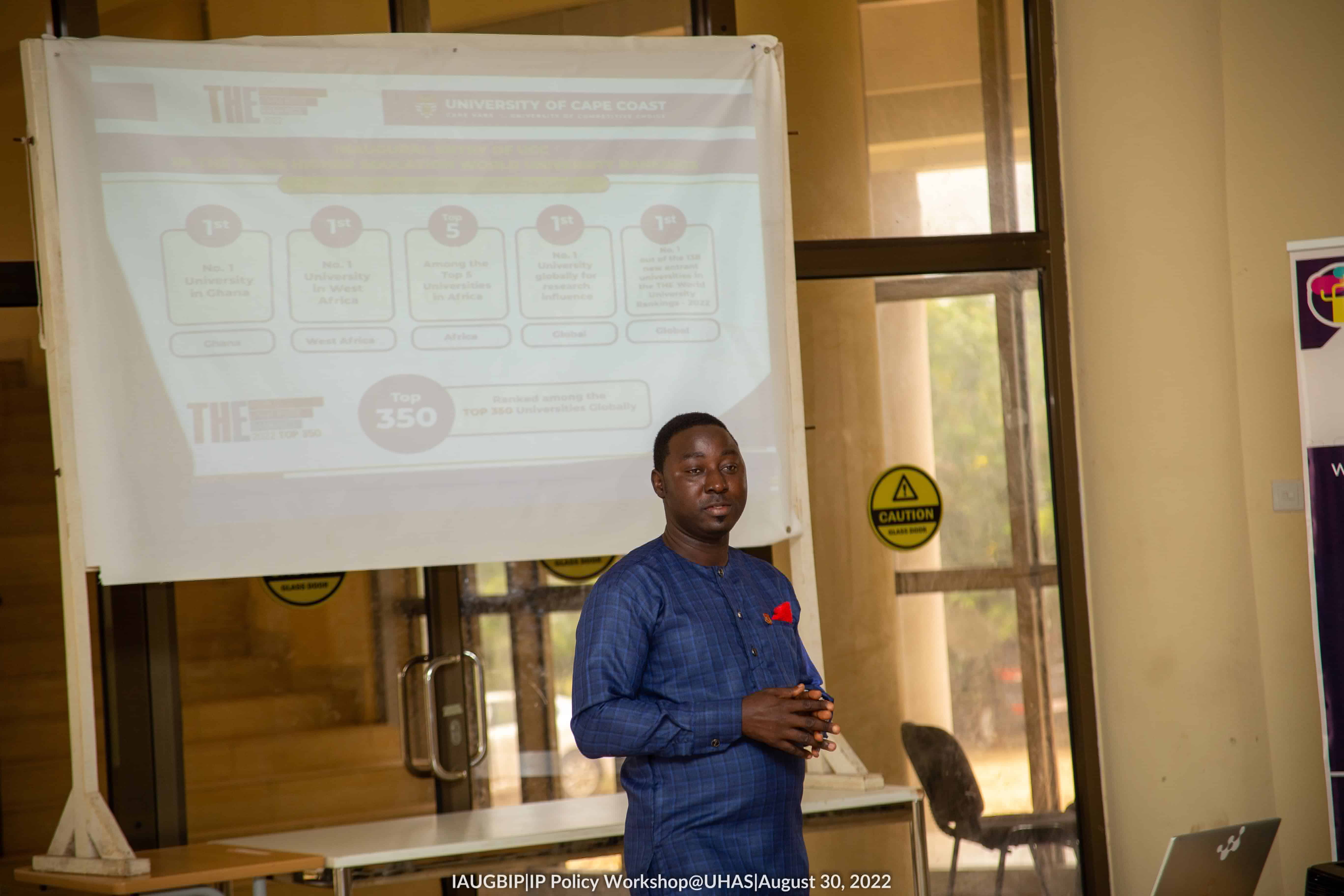Universities and Research Institutions urged to develop and operationalize Intellectual Property Policy
Universities and research institutions across the country are being urged to develop intellectual property policies for their organisations and put in place deliberate strategies and action plans for implementing the policies developed.
An Assistant Research Fellow at the Directorate of Research, Innovation and Consultancy at the University of Cape Coast, Mr. Isaac Nketsiah indicated that this was the only way the universities and research institutions can remain relevant and be more agile and responsive to the challenges in 21st-century higher education institutions.
‘‘The issue is that universities and research institutions hurriedly develop policies without clear cut implementation roadmap’’. He affirmed that ‘‘continuous awareness, creation and deliberate efforts to identify, register and commercialise university IP is necessary for achieving universities' mandates in the midst of rapidly changing trends in biomedical research and access to medical technology, especially in post Covid-19 era in Africa's sustainable development’’.

Speaking at a workshop on the emerging trends in intellectual property (IP) policy for biomedical sciences at the University of Health and Allied Sciences (UHAS), Ho, under the Ghana Bio-enterprise Innovations Partnership (GBIP) Project, Mr. Nketsiah who is also the Co-founder of the Centre for Intellectual Property Rights Awareness Ghana (CIPRAG) underscored the need for Universities and Research institutions to develop the intellectual property framework to guide their research and scholarly works to enable them to generate income from the commercialization of their works.
He expressed concern about how in the era of technological advancement most universities and research institutions in Africa still engage in teaching and basic research activities whilst missing out on opportunities for breakthroughs in groundbreaking discoveries and solutions for most of the continent’s challenges. He indicated that in this era of Covid 19, opportunities abound in the area of drug discovery and development of rapid diagnostic test kits.
He recommended that “universities and research institutions should develop and operationalize effective institutional IP policies that provides guidelines on creation, protection, commercialization, benefit sharing mechanisms as well as ownership of IP rights.”

He further stressed the need for universities and research institutions to put in place appropriate support structures such as the establishment of Technology Transfer Offices (TTOs), Business Incubation Services, Industrial Parks as well as University Enterprises in order to commercialise research outputs.
Present were the Director of public affairs, Mrs. Maria B. Gwira, a Director at CIPRAG, Mr. Saviour Sobia Komla Deikumah, the Principal investigator and Coordinator of GBIP Project, Prof. Kwabena Deudu and Dr. Jones Gyamfi, , biomedical research scientists, among a host of others.
The Ghana Bio-enterprise Innovations Partnership (GBIP) project is a one-year £100,000 project is being implemented by University of Health and Allied Sciences (UHAS) as the Sub-Saharan Africa (SSA) Lead University, University of St. Andrews as the UK Lead University, and University of Cape Coast (UCC) as the SSA Ecosystem Player in response to Africa’s teeming unemployed youth population. The GBIP project is component of the British Council’s Innovations for African Universities (IAU) programme with the aim of developing a knowledge-exchange mentorship programme that will equip students and young bioscientists in Ghana with the know-how to translate biomedical research into commercial solutions.


